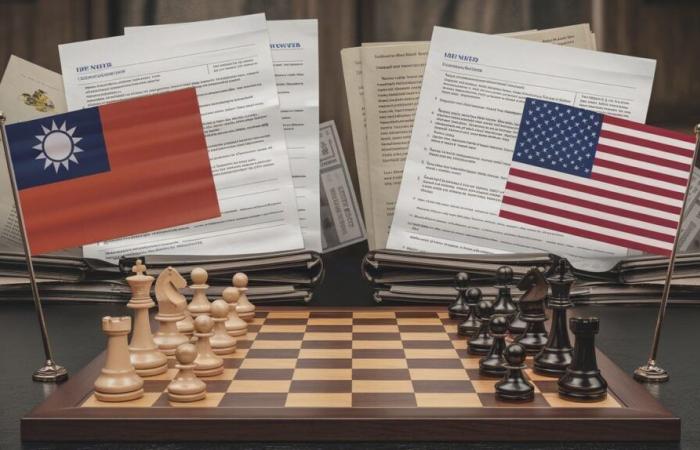Taiwan's president sends his “sincere congratulations” to Trump, but the future of bilateral relations remains uncertain. Between Chinese threats and economic issues, what to expect for Taiwan under the Trump administration?
Taiwanese President Lai Ching-te on Wednesday sent his “sincere congratulations” to Donald Trump following his victory in the US presidential election. In his message, the leader highlighted the importance of the “longstanding partnership” between Taiwan and the United States, which he considers “a cornerstone for regional stability.”
The statement comes as the island faces increasing Chinese military pressure in recent months. Beijing considers Taiwan to be a rebel province, and does not rule out the use of force to place it under its control.
Washington, Taiwan's key ally in the face of the Chinese threat
In this context, the United States appears to be an essential support for Taiwan's security. Over the past five decades, Washington has sold billions of dollars worth of military equipment to the island, including F-16 fighter jets and warships.
Historically, the United States has maintained a policy of “strategic ambiguity” regarding possible military intervention in the event of a Chinese attack on Taiwan. But during the campaign, Donald Trump stirred up trouble by suggesting that his country might not commit to defending the island if it were attacked.
Trump criticizes Taiwan's semiconductor industry
The president-elect also surprised by suggesting that Taiwan “should pay” the United States for its defense. He even accused the island of having “stolen” the American semiconductor industry, a key sector of the Taiwanese economy.
Faced with American pressure, Taiwan has decided to significantly increase its defense budget. A record amount of $19 billion has been allocated for 2024, and this envelope is expected to increase further the following year.
Taiwan determined to strengthen its self-defense capacity
Taiwanese Defense Minister Wellington Koo said Tuesday that his country was “determined to continually strengthen its self-defense capabilities”. A message that he intends to convey to the future tenant of the White House.
“The long-standing partnership between Taiwan and the United States, built on shared values and interests, will continue to serve as a cornerstone for regional stability and lead to greater prosperity for us all.”
– Lai Ching-te, President of Taiwan
Despite these efforts, uncertainties remain about how relations between Taiwan and the United States will evolve under a Trump administration. The president-elect's contradictory statements during the campaign cast doubt on the level of American commitment.
As China intensifies its military and diplomatic pressure, Taiwan will need clear and constant support from its main ally more than ever. Will the new American president be able to reassure Taipei and maintain the delicate balance in this highly strategic region? The next few months will be decisive.






